Illustrative Image: Building Resilience in Agriculture: National Geographic & PepsiCo Grants for Climate-Smart Farming Solutions 2025
Image Source & Credit: National Geographic Society
Ownership and Usage Policy
Submission Deadline: September 30, 2025, at 11:59 PM EDT
Agriculture remains at the heart of human civilization, supporting both livelihoods and global food security. Today, nearly half of the world’s habitable land is devoted to agricultural production, and close to one-third of the global population depends directly on farming for survival and income. Yet, agriculture is also one of the most climate-vulnerable sectors. Extreme weather events, rising global temperatures, pest outbreaks, soil degradation, and shifting ecological conditions increasingly threaten farming systems worldwide. Without effective tools for adaptation and resilience, these stressors can severely disrupt livelihoods, ecosystems, cultural traditions, and the global food supply.
Climate models consistently project that farming communities will face growing challenges in the decades ahead. The health of soils, watersheds, and biodiversity within agricultural landscapes will determine whether these systems remain productive and sustainable. Farmers, who have historically been agents of adaptation and innovation, are once again called upon to lead the way—balancing modern science with traditional and Indigenous knowledge systems that have safeguarded food production for centuries.
While a wide range of tools and practices exist to strengthen resilience, many remain in early stages of development or are implemented only locally. There is a pressing need to expand, scale, and test these approaches on the ground in ways that are scientifically rigorous, socially inclusive, and environmentally regenerative.
Opportunity Overview
This funding opportunity is supported by Food for Tomorrow, a collaboration between the National Geographic Society (NGS) and PepsiCo that seeks to catalyze sustainable, real-world solutions to the agricultural challenges of our time.
Selected projects will focus on science-driven, nature-positive solutions that directly enhance the resilience of farms, farming communities, and surrounding ecosystems. The emphasis is on applied innovation—approaches that go beyond theory to measurable field-based outcomes. Projects should integrate regenerative practices that deliver ecological, social, and economic benefits while strengthening adaptation to climate change.
Successful proposals will demonstrate progress in at least two or more of the following priority areas:
-
Soil Health: Building fertility and restoring soil systems above and below ground to sustain long-term productivity and ecological balance.
-
Climate Mitigation & Adaptation: Implementing practices that reduce emissions, sequester carbon, and increase resilience to droughts, floods, and other climate extremes.
-
Watershed Health: Improving water use efficiency, reducing runoff and pollution, and supporting water security for both farms and communities.
-
Biodiversity: Protecting and restoring ecological diversity in farming landscapes, from soil microbes to pollinators, forests, and wildlife corridors.
-
Improved Livelihoods: Supporting farmers through training, equitable participation in decision-making, and access to resources that foster both sustainability and economic security.
Projects must be rooted in the field: implemented and tested directly on farms, in farming communities, or in landscapes adjacent to cultivated land. They must also involve one or more of the following food crops: corn, wheat, oats, potatoes, sugar beets, oilseeds (canola, sunflower, rice bran), rice, cocoa, oil palm, raisins, and soy.
Approach and Priorities
NGS and PepsiCo are particularly interested in projects that identify localized barriers to adopting regenerative and climate-smart practices. A key component of resilience-building lies not only in environmental outcomes but also in assessing cultural acceptance, social equity, and economic feasibility.
Therefore, strong proposals will:
-
Be co-designed and/or led by local collaborators, especially farmers and farming communities with relevant expertise and contextual knowledge.
-
Align with FAIR (Findable, Accessible, Interoperable, Reusable) and CARE (Collective Benefit, Authority to Control, Responsibility, Ethics) principles, ensuring scientific integrity and ethical engagement.
-
Demonstrate potential for scaling and replication in diverse geographies, while remaining grounded in community-specific realities.
Eligibility
To qualify for this opportunity, applicants must meet the following requirements:
-
Project budget must not exceed $150,000.
-
Applicants must be 18 years or older.
-
Projects must be completed within two years of funding.
-
The proposal must include field-based implementation with one or more of the eligible crops.
-
Applicants must collaborate with local partners who bring farming or community expertise.
-
Applications must be submitted in English (though English need not be the PI’s first language).
Not eligible:
-
Projects focused solely on non-food crops (e.g., cotton, jute, hemp).
-
Projects centered exclusively on livestock, feed, or animal husbandry.
-
Initiatives that are not co-created with farmers.
-
Basic research projects without applied implementation.
-
Proposals exceeding the budget limit without secured additional funding.
-
Projects requiring new land conversion—solutions must operate on existing farmland.
Benefits of Participation
Successful applicants will become National Geographic Explorers, gaining access to a vibrant global community of innovators and practitioners. Additional benefits include:
-
Opportunities for mentorship, training, and capacity building.
-
Participation in international events, including travel to Europe in early 2026 and to NGS headquarters in Washington, DC later that year.
-
Potential global visibility through media coverage, documentaries, photography, and communication campaigns.
-
Long-term connections with partners, peers, and funding opportunities to extend the impact of their work.
Webinars
To assist applicants, NGS will host three informational webinars (same content, different times):
-
Tuesday, August 5, 2025 – 9:00 PM EDT (01:00 UTC)
-
Thursday, August 7, 2025 – 11:00 AM EDT (15:00 UTC)
-
Monday, September 8, 2025 – 9:00 AM EDT (13:00 UTC)
Recordings of the first two webinars will be available, and registration is required for the final session.
Application Process
-
Applications must be submitted via the online application portal (not by email or post).
-
Further guidance is available in the FAQ document.
-
For questions, applicants may contact funding@ngs.org with “Building Resilience in Agriculture RfP” in the subject line.
✨ In summary, this call invites practitioners, researchers, and communities to design and implement farm- and community-based innovations that strengthen resilience in agriculture. By blending scientific knowledge with cultural and traditional practices, this opportunity aims to ensure that farming systems remain productive, sustainable, and regenerative in the face of climate uncertainty.



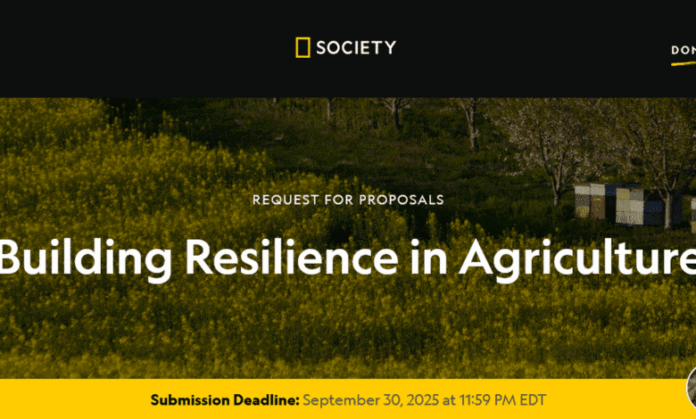


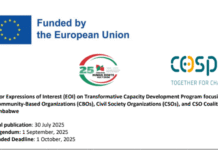
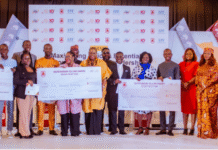
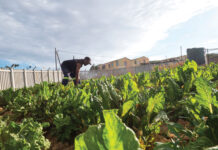
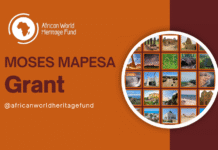






 The African Research (AR) Index is a comprehensive scholarly directory and database focused explicitly on journal publishers that publish and disseminate African research.
The African Research (AR) Index is a comprehensive scholarly directory and database focused explicitly on journal publishers that publish and disseminate African research.

